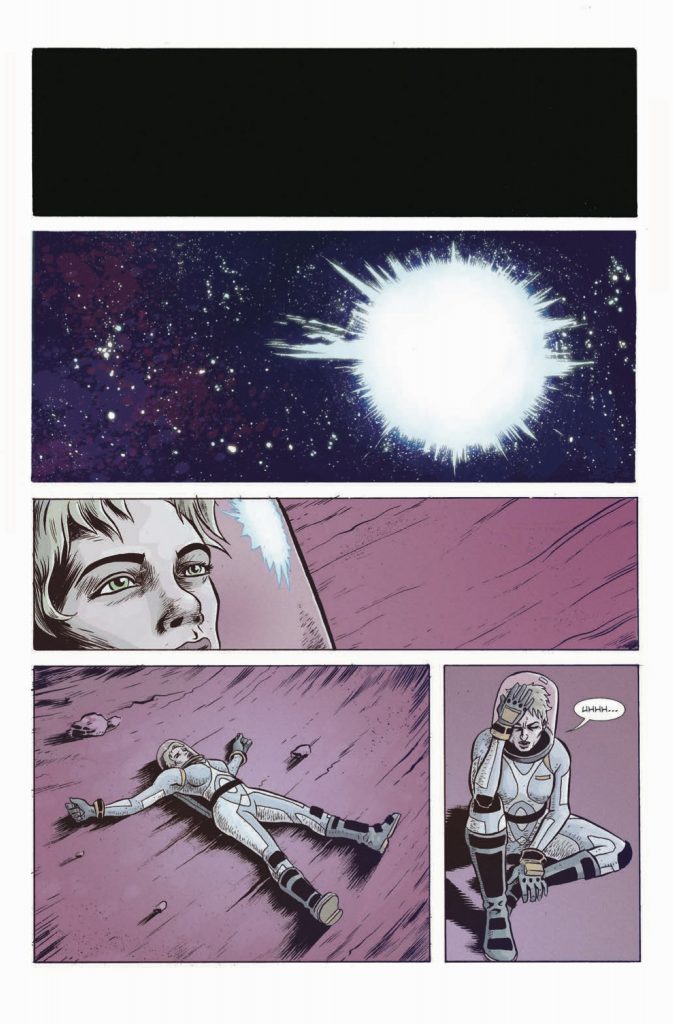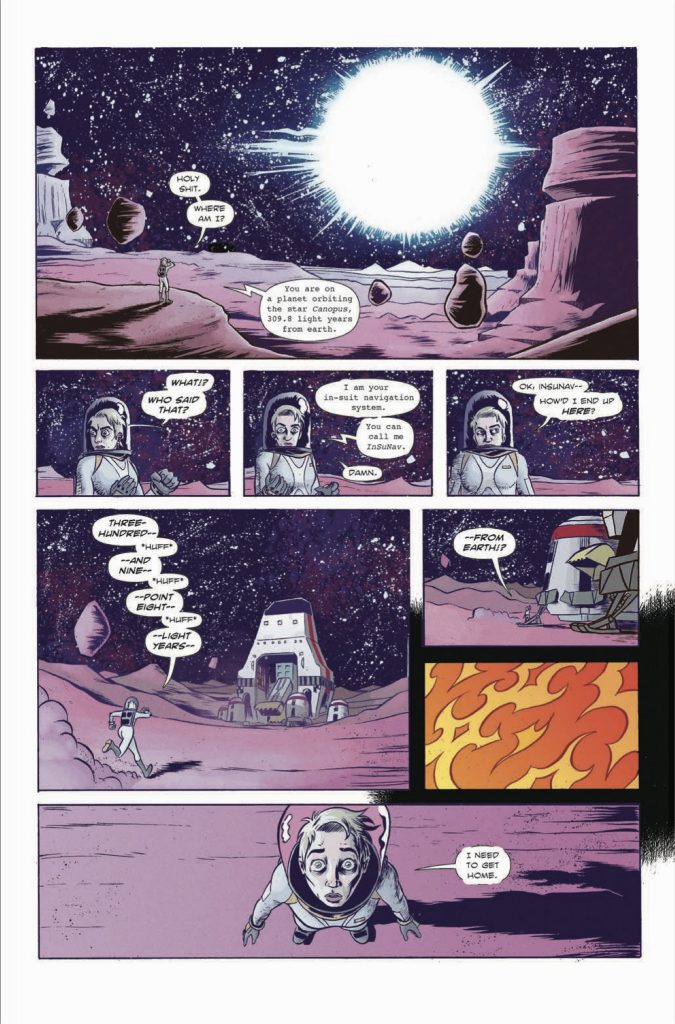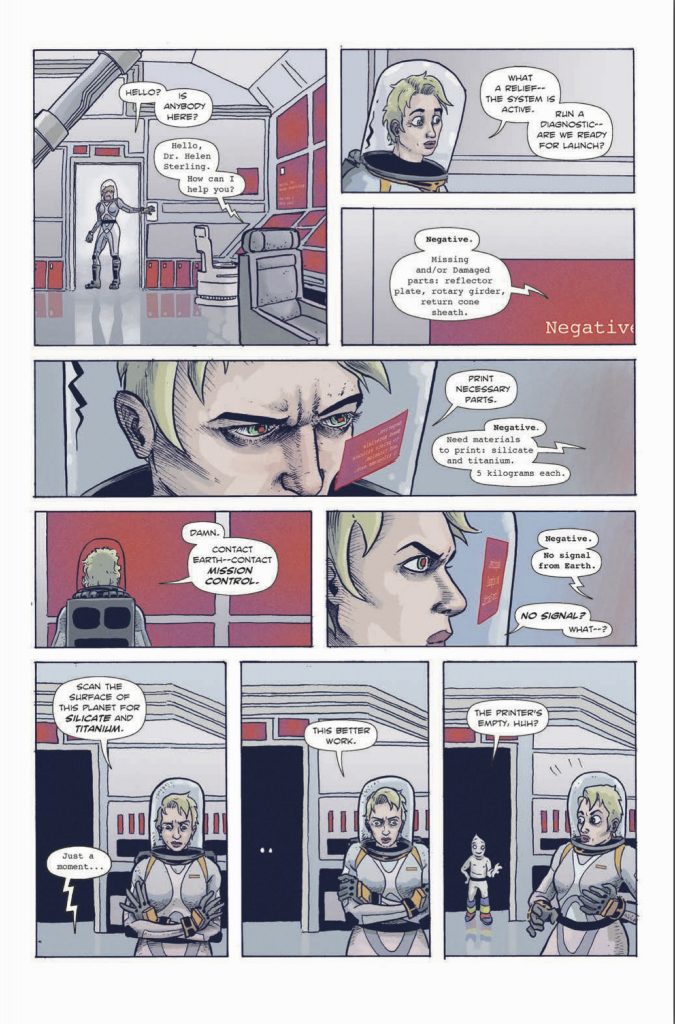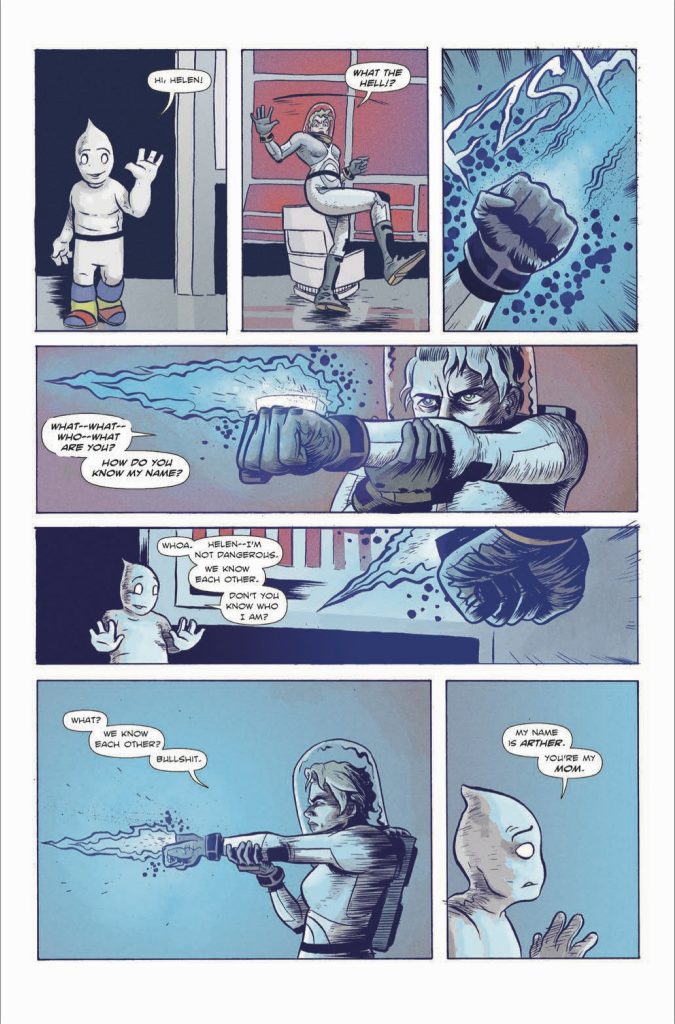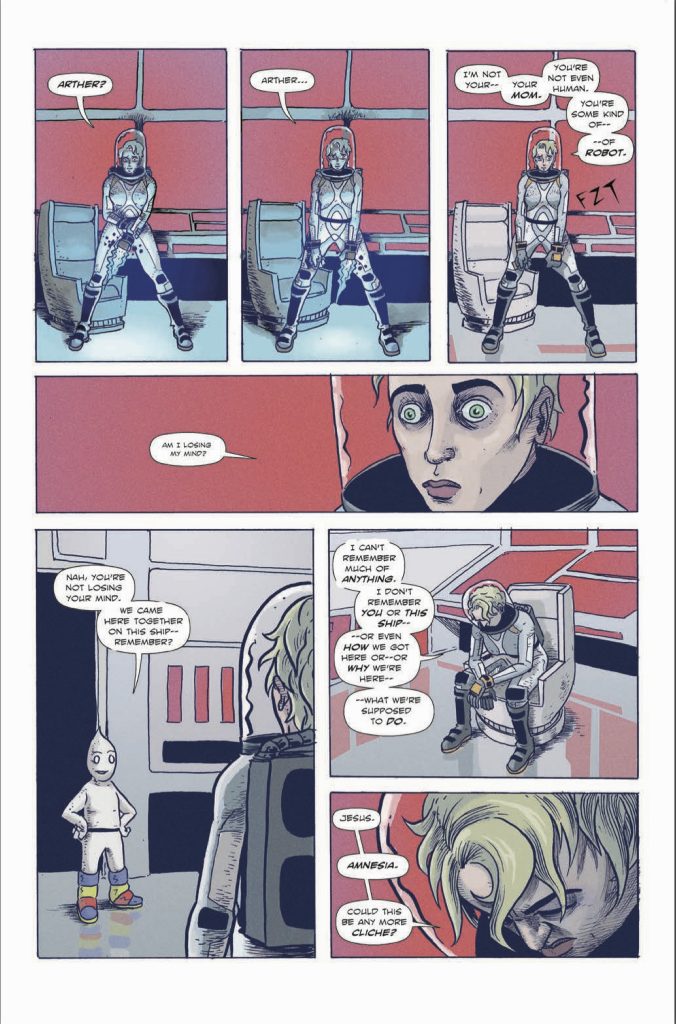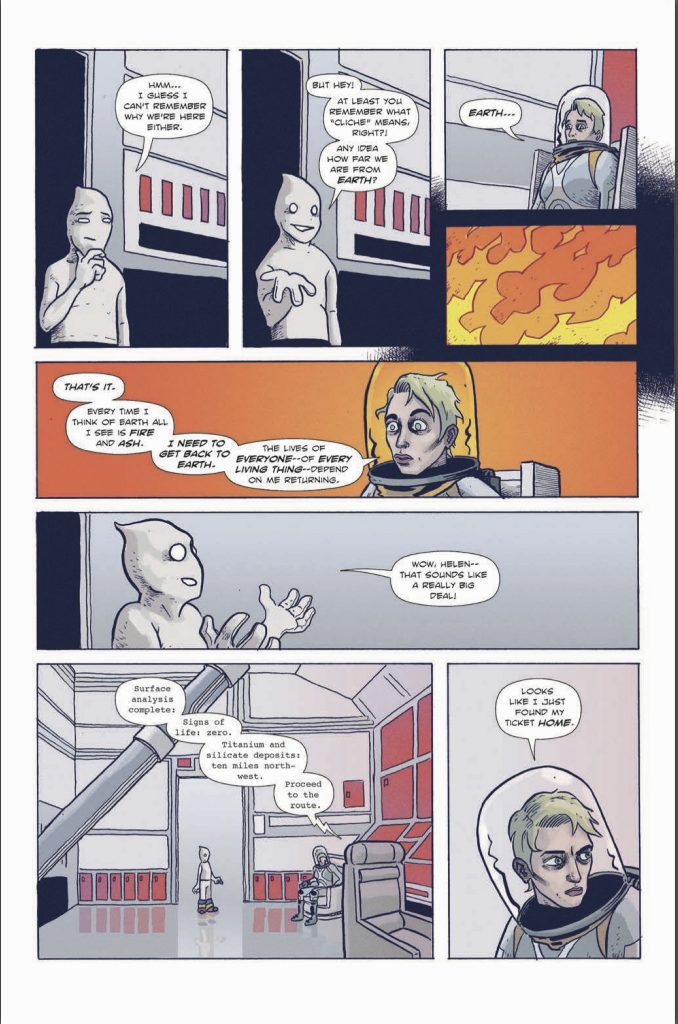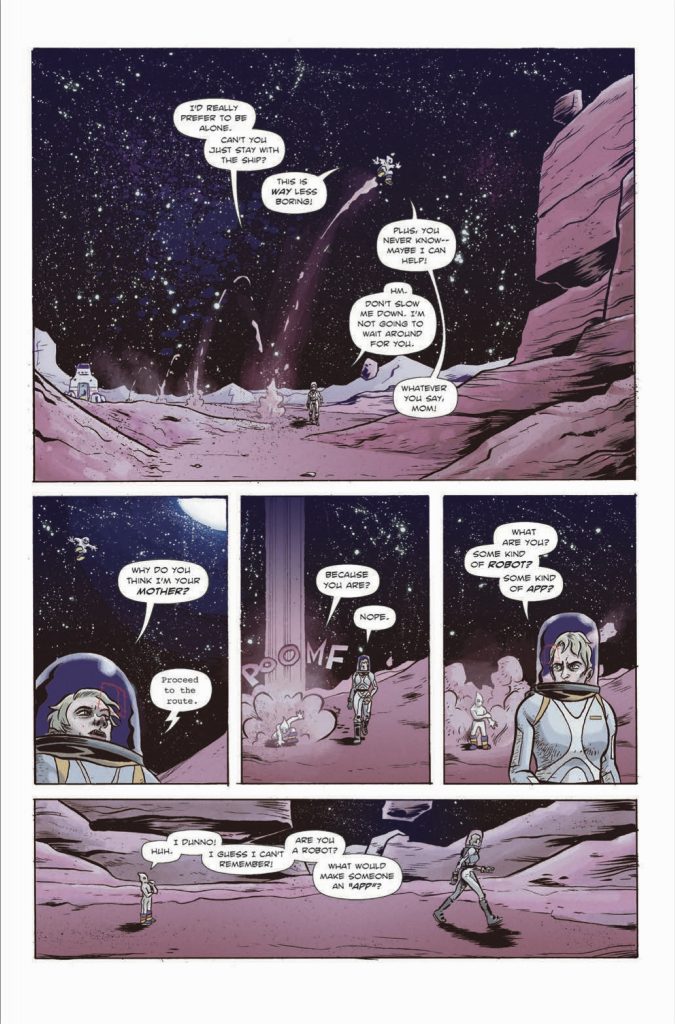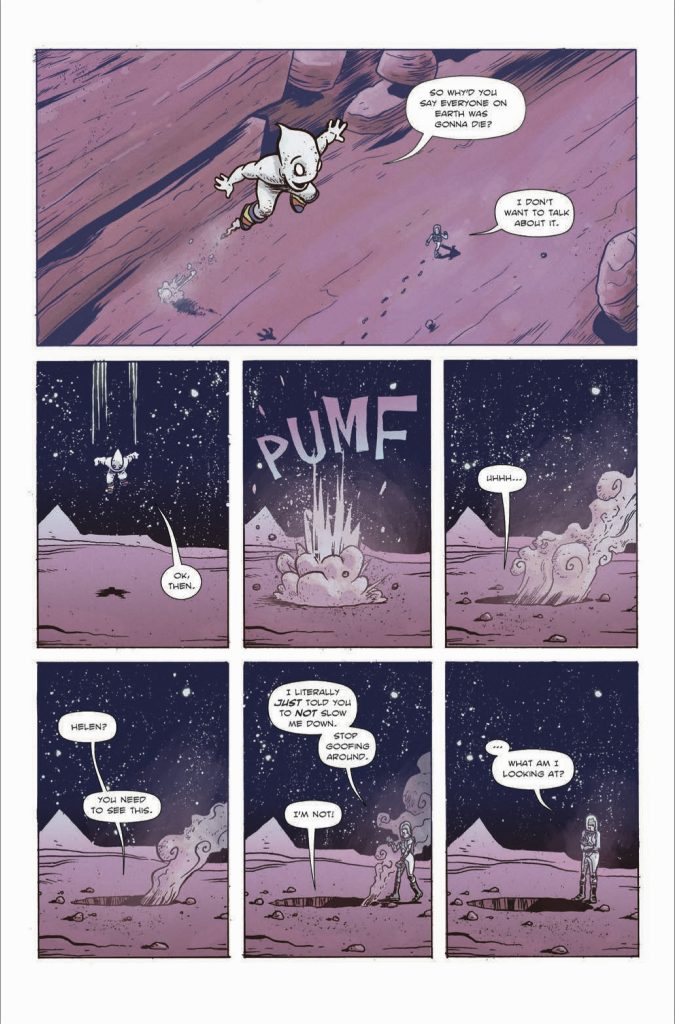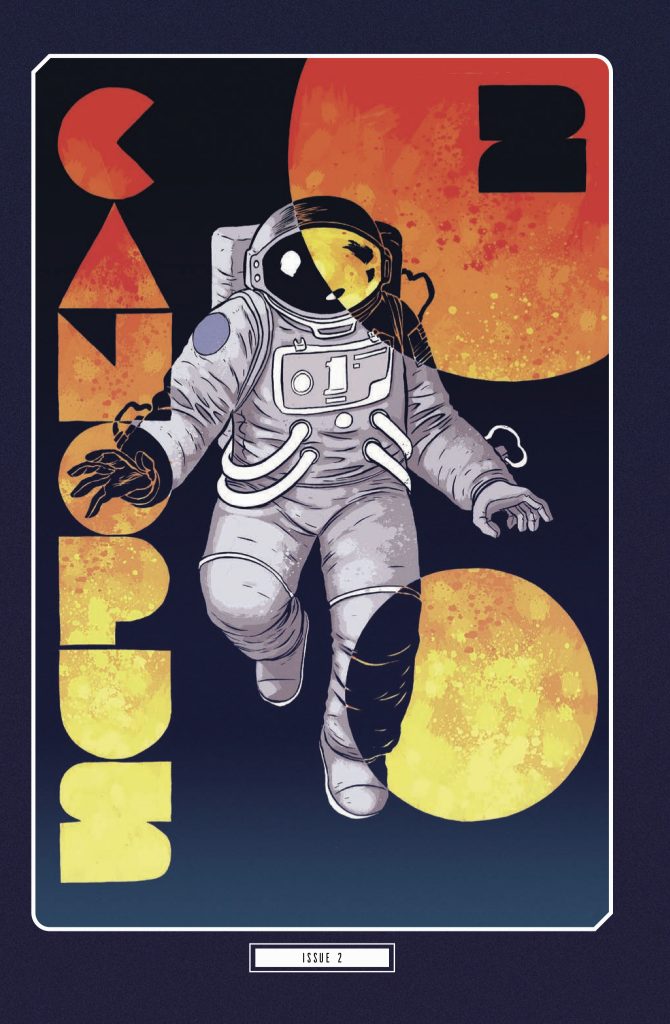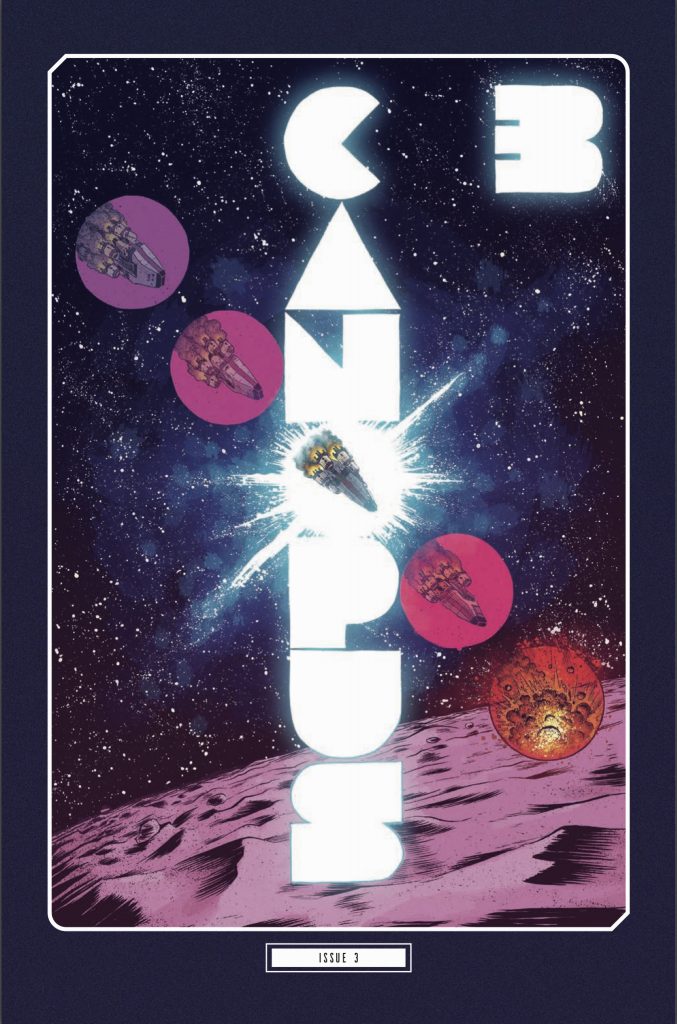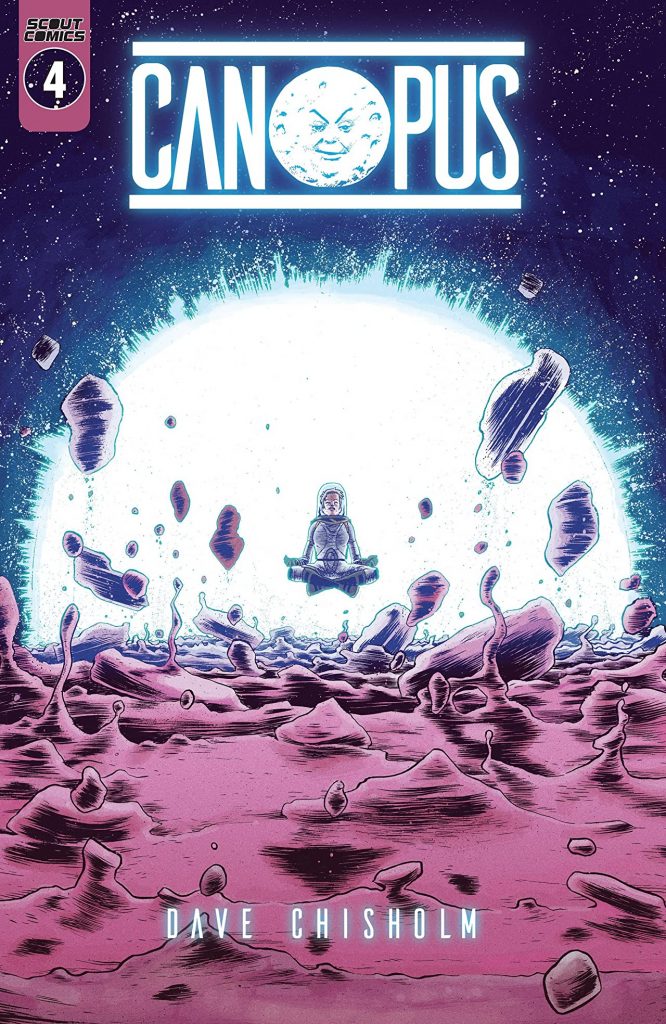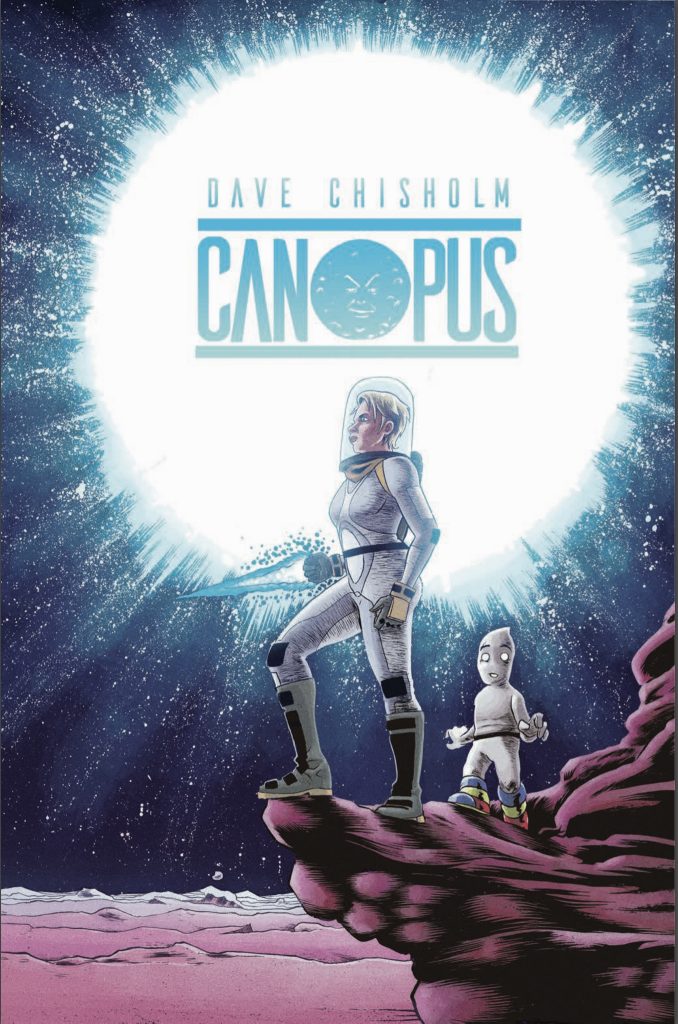
- Canopus (collected trade paperback)
- Individual issues here!
- Scout Comics
- Created, Written, & Illustrated by
- Color Flats by Dustyn Payette
- Production by Joel Rodriquez
Gifted scientist Dr. Helen Sterling has made a discovery that seems tailor made to solve all of Earth’s problems. Dubbed Memoria, the extremely adaptable molecule would be able to absorb & process pollutants while leaving no by-products or waste in its wake. Almost inevitably, however, the molecule is prohibitively expensive & near impossible to reproduce.
After a decade spent searching, Helen has found the improbable. Orbiting the star Canopus 310 light years from Earth, there’s a planet made almost entirely of Memoria. With a brand new & state of the art interstellar drive, Helen will lead a team to this planet where they will recover the much-needed solution to all of our planet’s woes.

As you read my very basic breakdown of the events leading into Canopus, there’s one important thing to keep in mind: none of it is at the heart of what this book is really about. In the spirit of Wonderflonium or Unobtanium, the miraculous Molecula Memoria is a MacGuffin of the highest order. A plot device serving to push the story toward its true purpose as an exploration of how guilt and abandonment hold us back and force us to repeat our mistakes.
Yeah, I’m probably gonna need some gratuitous violence after this one, a comic in the spirit of the Michael Bayest of Michael Bay movies (in case you were wondering, that would be 6 Underground). Maybe with ninjas.
Previously released as individual issues, which thePullbox had the opportunity to preview back in March of 2020, Canopus is now getting the collected trade treatment. With that new release, creator Dave Chisholm was eager to get his work out into the world all over again, and I was happy to hear from Dave again. I’d lost track of the last couple issues and never got to find out how his story ended.
Now I know, and knowing is half the battle.
The problem/beauty in a story like Canopus is that there will always be someone wanting to argue the science and plausibility of it all, missing the fact that science fiction is often used to explore very personal themes with no regard for realism. All that’s required of the “science” behind science fiction is that, once established, the rules be maintained. Everything else is just fodder. Casein point, Gene Roddenberry came up with Star Trek’s transporters because he knew that the Enterprise couldn’t land on a planet, and having to construct sets that included a shuttle every week would be a pain. With that eloquent piece of made up science, Gene stayed in his production crew’s good graces, and “beam me up” became a part of our vocabulary.
Dave Chisholm (Charlie Parker- Chasin’ the Bird) establishes the importance of Helen Sterling’s mission early on, and her determination to stay the course is a theme throughout. Another theme becomes part of Helen’s character arc as she slowly remembers the details leading up to being stranded alone on an uninhabited planetoid. Chisholm’s greatest achievement in Helen’s development is that he lets her be a rather unpleasant person. She’s not a saint by any stretch, but she is a product of the life she’s lived and the world she’s lived it in. That makes her a little more relatable, more believable as a character, and helps her stand out among the pantheon of comic book protagonists.
Pulling double duty as writer & artist, Chisholm faced the challenge of visually creating the concepts he’s dreamed up and putting them on the page. The style he’s adopted for Canopus might seem a little odd at first glance, but in every way that matters to the story I think it works. Helen has the rough around the edges look of someone who’s spent years working through sleepless nights, struggling to find her way through the problem at hand. Her companion Arther looks every bit the computerized buddy robot that they’re meant to be, right down to their multi-colored boots and childlike grin. The planet they both find themselves on is a blank canvas, there to provide a series of set pieces in which Helen discovers one clue after another on her way to her own personal truth.
As far as interstellar sci fi stories go, Canopus is pretty contained and is a good choice for readers looking for something a little less explodey and a little more introspective. Sure, the deus ex machina abounds, but getting past that isn’t too big a chore once you understand what the story is looking to accomplish. As part of Scout Comics’ growing library of diverse and often left-of-center titles, anyone looking for a comic harkening back to The Outer Limits could find a welcome addition to the bookshelf (literal or digital) in this one.
Final Score: 10/13
